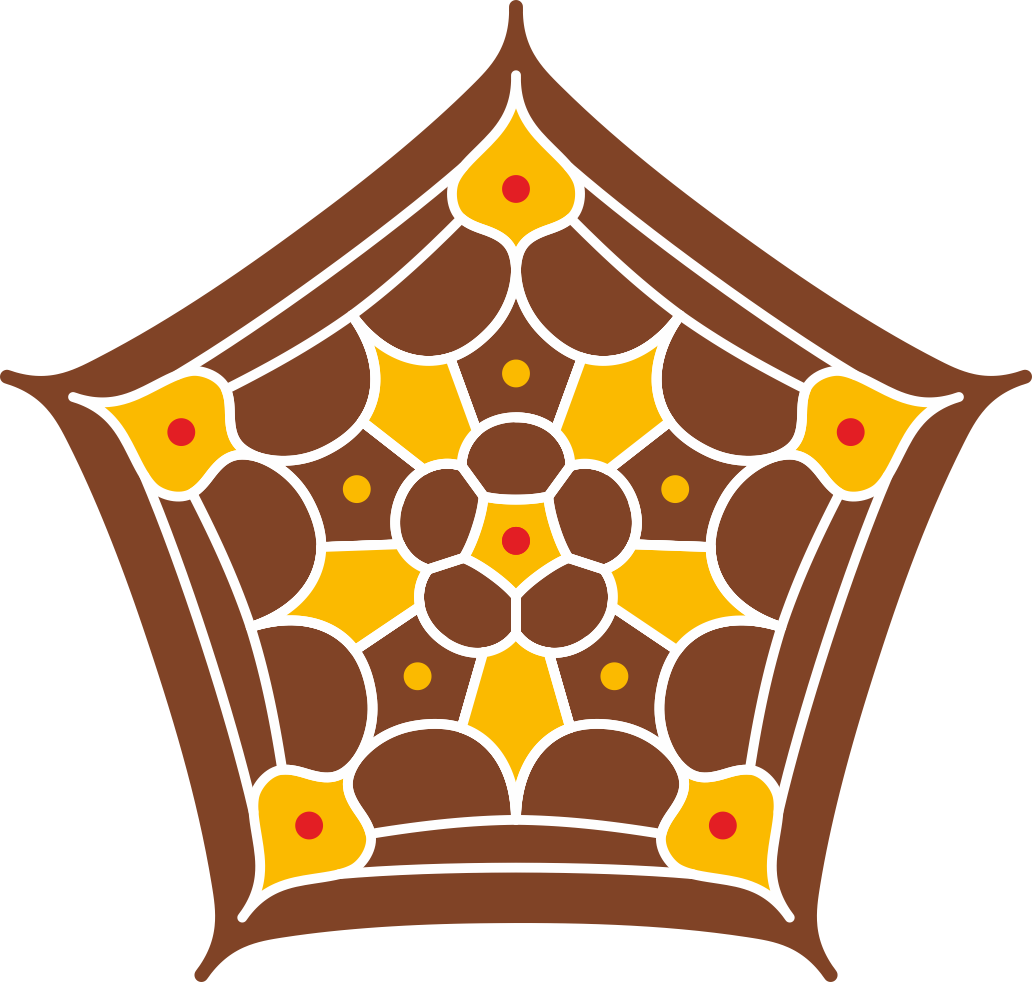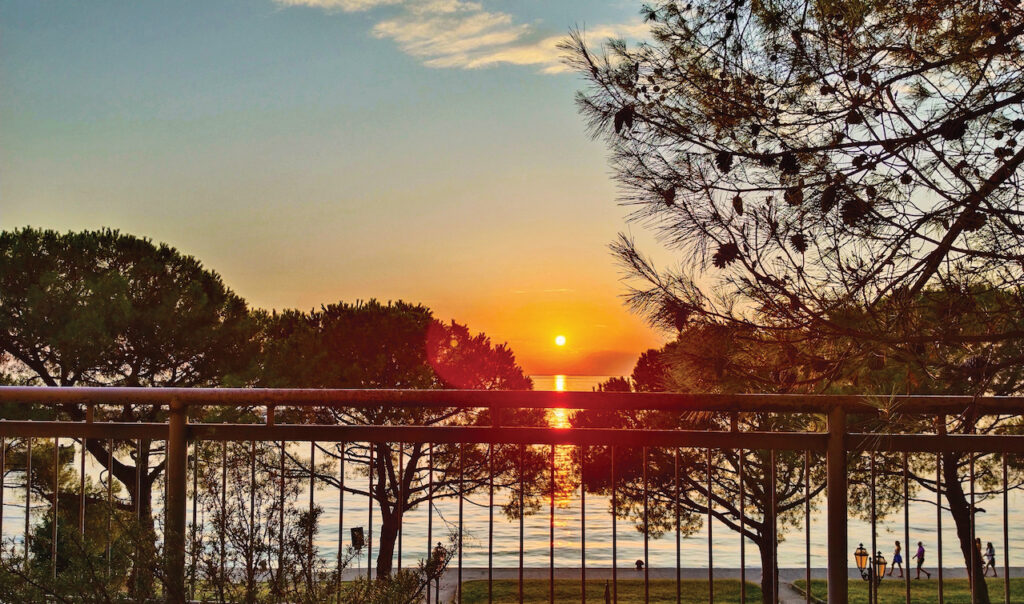
Our trip to the International Centre for Theoretical Physics (ICTP) in Trieste could arguably be called the first “official” travel under the aegis of Bhāvanā magazine.
We flew into Trieste on Sunday, 1st September 2024. ICTP had sent us information on the options for getting from the airport to the Centre and we had done our own research as well. There were three alternatives: bus route G51 from the airport to ICTP, a train from the airport to Trieste Centrale followed by bus route 6 to ICTP, or a train from the airport to Miramare station. Taxi was also an option but we did not want to splurge on that as far as possible. Trieste is a small airport and looked deserted as we came out of the terminal building. No taxis and no buses were to be seen. Even the ticket office1 at the bus station was closed because it was a Sunday! There was a ticket vending machine but it would only accept cards while all we had was cash. So we walked on further to the train station, where fortunately we found a ticket vending machine that would take cash. Quite by chance, we happened to read the reverse side of the ticket while waiting for the train and realized that we had to “validate” the tickets as well. We found another machine that would do this – we inserted the ticket and the machine punched it and spat it back out. As the train approached Miramare station we wished that the train would stop there and we could then easily get to Galileo Guesthouse. To our dismay, the train didn’t stop there. It was so near yet so far! At Centrale, we had a bite for lunch before plotting our next move. We decided to catch the bus to ICTP. But we still had the problem of where to buy the bus ticket as the tobacco shop on the station premises was also closed. However, we saw a group of uniformed people, probably belonging to the transport department, and decided to approach them. Even though they were not fluent in English, they went to great lengths to call other colleagues a little distance off who could communicate with us and eventually, they understood our problem and kindly directed us to a vending machine around the corner where we could get the tickets. They also made sure that we understood where to catch the bus after getting the tickets. They were extremely helpful and our thanks to them for making us feel safe and taken care of in an unfamiliar city on the very first day itself!
The very first experience of climbing the steep, winding curvy road that passes between the hills and the sea to the Galileo Guesthouse made us realize the words of Umberto Saba in their truest sense!
grazia. Se piace,
é come un ragazzaccio aspro e vorace,
con gli occhi azzurri e mani troppo grandi
per regalare un fiore;
come un amore
con gelosia…
In translation:
If you like it,
it is like a harsh and voracious scamp,
with blue eyes and hands too big
to offer a flower;
like a love
with jealousy…
Upon our arrival at the Galileo Guesthouse at ICTP, the desk manager already had our ID badges ready. After checking our passports, he handed over our room keys and answered the many questions we had about where to go for meals, where to buy bus tickets to travel to the city (which, as it turned out, we could do right there, at the guesthouse reception.), the shuttle service to travel from one ICTP building to another. We also received our RFID-enabled ID cards which gave us access to not only the guesthouse, but also the other buildings where we would need to go for our work. No additional paperwork, no additional approvals, no additional red tape or bureaucracy!
The Galileo Guesthouse where we stayed is up the hill and is the smaller of the two guesthouses at ICTP. It had guest rooms, of course, equipped with two beds, an attached bathroom, study tables, chairs and a reasonably large blackboard too. The rooms would be cleaned and the bed linen changed regularly. The guesthouse also had a common TV, a washing machine, reading rooms, and even lecture halls where we saw some classes conducted almost every evening. In the common area near the reception was also a shelf to hold donated books which were available for everyone to read. We added a copy of Bhāvanā to that collection.
The guesthouse also has a bar, which has nothing to do with serving alcohol. It is a sort of pantry area with some vending machines for coffee, some basic food items as well as some bathroom essentials and also a few tables where one can sit and eat. There is also a kitchen area where we regularly saw some long-term residents cook their dinner. Short term visitors like us relied on the catering services. At the Galileo Guesthouse, the catering was provided only for breakfast though. And breakfast, for many people there, seems to mostly consist of coffee and croissants.
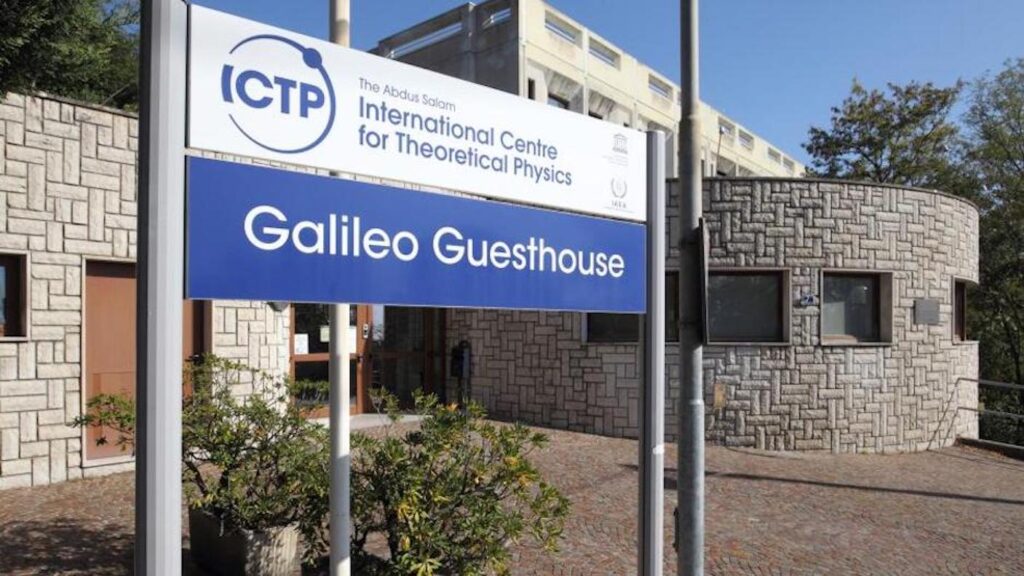
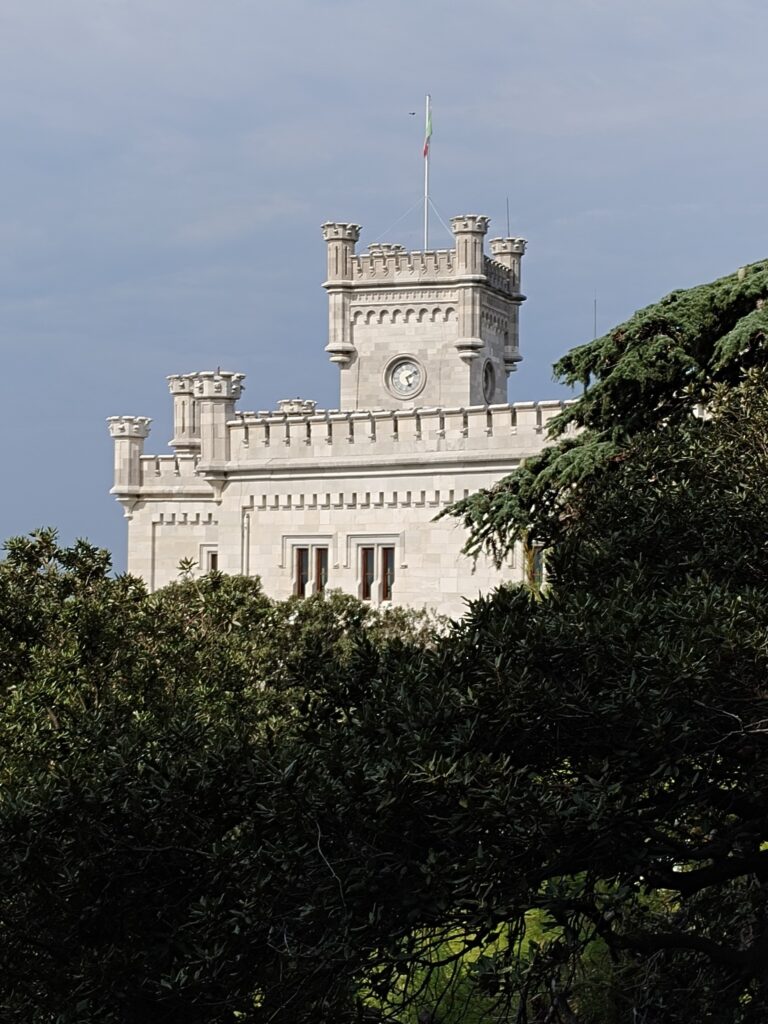
Apart from the guesthouses and the Leonardo Building, the other major buildings in the ICTP campus are (i) the Enrico Fermi building where the Science, Technology and Innovation (STI) section along with most of the administrative sections like finance and operations are housed, (ii) the former SISSA building which now hosts ICTP’s Earth System Physics (ESP) and Quantitative Life Sciences (QLS) sections, and (iii) the Multidisciplinary Laboratory building, which we unfortunately did not get the time or opportunity to visit during our stay.
There is a shuttle service available to commute between the various buildings, but the frequency is quite low. We anyway preferred to walk and enjoy the greenery and the fresh air. One of the walking paths from Galileo takes one through a small section of the Miramare park, and then a series of steps leads to the Leonardo building. Indeed, these steps were frequently used by Paul Dirac, and hence called “Scala Dirac” (Dirac stairs).
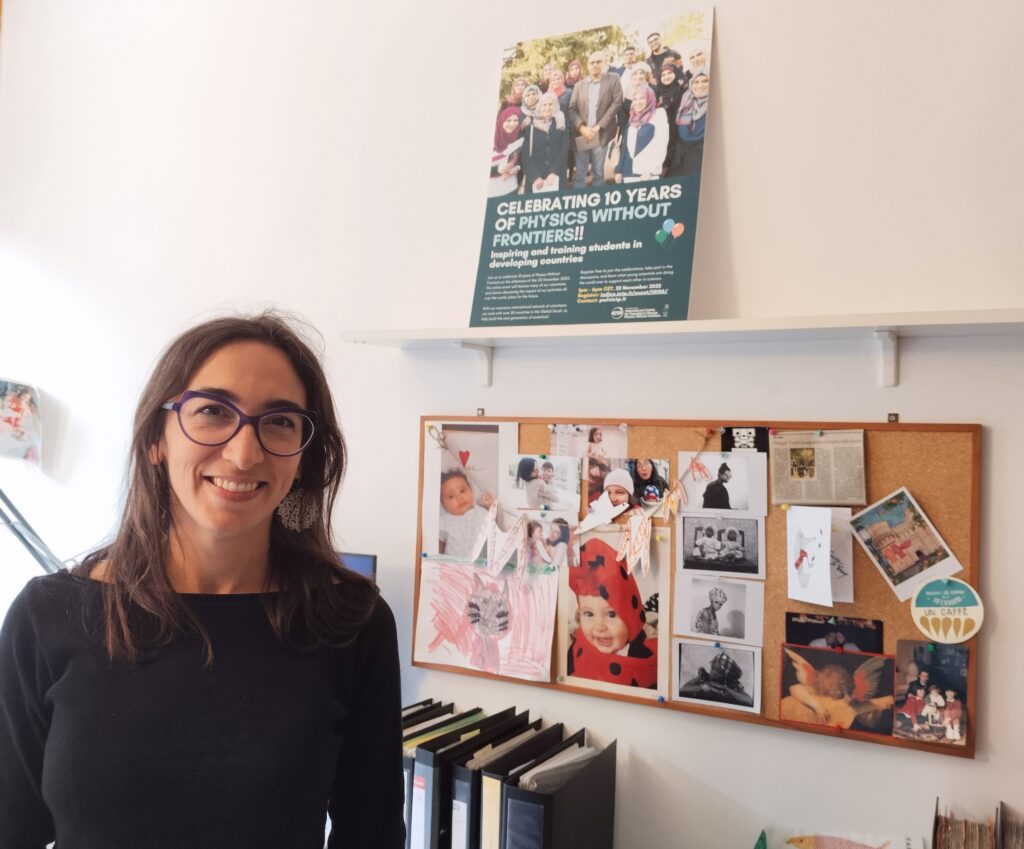
As we found out later, Margherita had an interesting story about how she herself had discovered ICTP while working on some translations from Italian to French during her student days. It was then that she came across the term “Sistema Trieste” [the Trieste System] which refers to the integrated network of 17 institutions2 operating in research and innovation, which are all present in Trieste. Apart from ICTP, there are SISSA (a university institution), INFN (Nuclear Physics), INAF (Astronomical Observatory), ICGEB (Genetic Engineering and Biology), OGS (Oceanography and Geophysics), the Elettra Synchrotrone and many others. Having thus discovered ICTP, she had repeatedly applied to work there through an open roster system offering part-time positions, but without much luck. That was until she returned to Trieste after working for two years at the Ministry of Foreign Affairs in Rome for what she had hoped would be a relaxing break. It was then that she got a call from ICTP asking her if she could join on a part-time basis for 10 days. She gave up her break to grab “an opportunity of a lifetime” that has evolved into a full-time role at ICTP, going from working with the summer school activities, to the associates program, to taking up the role of a group secretary for the HECAP group. Over the course of her association with ICTP since 2013, she considers herself “super lucky” and “privileged” to have been a part of programmes like “Physics Without Frontiers” or even to be able to, “just walk around the corridors and hear so many different languages spoken.”
Margherita also coordinated our travel arrangements and stay at ICTP. We received regular communication, guidance and support from ICTP throughout with the visa process, ticketing, guesthouse bookings and general do’s and don’ts. This is not a surprise, given that the ICTP machinery is geared to handle about 6000 visitors every year from all parts of the world. Right from ICTP’s inception (long before online meetings became the norm) the concept of the associates program was that scientists from the developing world would come to Trieste multiple times during the course of their associateship to establish and develop contacts with other colleagues and experts in their domain. It is perhaps only natural then, that ICTP has the right experts handling the travel and accommodation process for visitors.
As Nutan Wozencroft, Special Advisor to the ICTP Director on Operations, explained to us, ICTP works on three main pillars to make sure that every visitor’s experience is as smooth as possible so that they can concentrate on their scientific pursuits without worrying about administrative aspects. The first pillar takes care of the travel and visa arrangements. ICTP is known because of its work which has led to several relationships being established with various governments and offices, and that makes things easier. An extremely experienced visa office networks with Italian embassies in almost every country. So this first requirement is well taken care of.
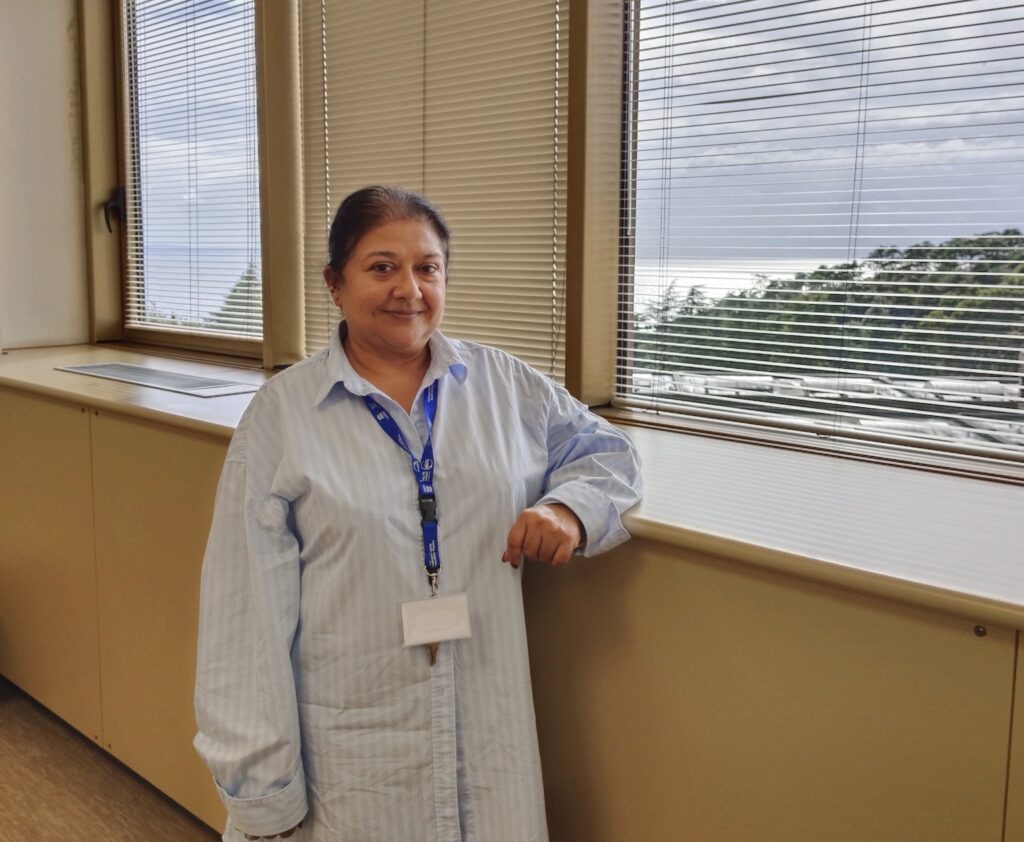
Another initiative that ICTP is now trying out for the latest batch of diploma students is a built-for-purpose student accommodation in the middle of the town. ICTP makes all the arrangements so that the students don’t have to worry about deposits, utility bills, internet, and so on. The environment there is like a dorm. Being on the bus route, the commute to ICTP is also hassle-free and very reasonable at about 30 euros for a monthly bus pass. Indeed, ICTP takes these costs also into consideration while determining the students’ “living stipend”. The students are also given a settling-in grant to meet the needs of the first few weeks.
The third pillar is catering. Nutan elaborates, “One of our primary concerns is that those who come here should not be worried about the cost of food. If you have had food here, you know that the price is about 5 euros [for a filling three-course meal]. You cannot really buy even McDonald’s for 5 euros in Trieste, and Trieste is generally low cost compared to the rest of Italy”. That is a challenge she (and ICTP) continuously deal with, especially with escalating costs due to geopolitical realities far beyond the control of ICTP. To conclude, Nutan adds, “And then, of course, there’s the whole running of this building and the general upkeep…”.
We too received a living stipend to take care of our basic needs (mostly food) during our stay at ICTP. A couple of days into our stay, we were asked to visit the cashier at the Enrico Fermi building to collect our cheques.3 This process too was extremely smooth, with minimal paperwork and no hassle. Along with the cheques, we also got detailed instructions on how to get to the bank in the city (including a route map) and what procedures to follow there to encash our cheques.
Once at ICTP, a typical first-time visitor would still need help with several administrative aspects like office arrangements, finding stationery, getting printouts and so on. This is one of the roles where the group secretary pitches in. This is not to say that this is the first time the secretary gets involved. They are the ones working behind the scenes right from the moment the visitor application is entered into the ICTP system. The budget estimation, working out the accommodation and other logistics, are all triggered simultaneously. The various offices involved are all plugged into the same central system and swing into action to make the necessary arrangements. As Margherita explained, “My role is basically to check that everything is okay. When the person arrives, if they are not staying at the guesthouse, I have to register them, otherwise, they’re already registered when they check-in. They receive a badge, and an account, and I verify that both work, and I assign an office room. If it’s the first time they come here, I explain more thoroughly about ICTP, where the person can find the offices they might be dealing with and introduce them to their main collaborator or host. And then before they leave, I have to get the badge and the key back. Also, troubleshooting is part of the job. For any problems that might come up, either I take care of it or I forward the request to the right office. So there’s a lot of teamwork between the various administrative departments. And there’s a certain degree of autonomy in dealing with these of course”.
There are some differences in the procedures followed for visitors, staff members, non-staff members, temporary positions like postdoctoral fellows, and so on. Also, being a UNESCO organization, the relevant protocols like carbon emission guidelines for travel, security clearances, and so on must also be followed, and the group secretary ensures that everything is as it should be. The secretaries’ role extends to things like checking room availability for a seminar, creating Zoom credentials for an online session, preparing an announcement for a seminar, taking care of the webpage, updating the phone book, and announcing openings for various positions. In short, anything that is not strictly research-related is taken care of by the secretaries which in turn helps the researchers focus on their work. We began to get a sense of the profundity of a remark that Alberto Verjovsky made [in our interview with him], “Every good institute has a great secretary”.
As part of the Bhāvanā team, we were there to cover ICTP on the occasion of its 60th anniversary – a significant milestone. But it was very clear that just like its scientific contributions, the Centre itself was in no mood to rest on its laurels but is continuously striving to stay ahead of its time. In the previous article we have already spoken of the library team’s vision to set an example for the rest of the world. Atish spoke about his vision to transform Adriatico into a modern science complex. This drive for cost efficiency and modernization is not limited to these big-ticket items alone but is ingrained into every aspect of ICTP’s thought process. There is an awareness that the Centre is government-funded and these funds are meant to create a student and researcher-focused environment and for subsidizing as many deserving candidates as possible. This means that any unnecessary cost has to be eliminated and any possible efficiency exploited. In line with this approach, Nutan told us about several developments like the installation of solar panels at Galileo, modernizing the heating and cooling systems, eliminating all landlines, creating efficient collaborative spaces and so on. The idea is to think ahead and build something that will last for the next several years, if not decades. But the best-laid plans can be upset by events outside ICTP’s control and Nutan knows this only too well, “In fact, it was interesting”, she says, “our cost came down significantly between 2020 and 2022. And then, you know the geopolitics that happened. Everything went up again, wiping out all the efficiencies and adding more costs on top of that. So, this is my life, constantly watching the gas bills”.
Also noteworthy is the fact that there is a robust system in place to solicit and evaluate feedback from everyone. We could see during our stay, QR codes for providing feedback regarding the catering contract that was set to go for a rebidding. Even short-term visitors like ourselves could participate in this feedback process. Also in general, there are student representatives and faculty, who, in Nutan’s words, “are not shy about saying what they’re happy about and what they’re not happy about”. All the unit heads in the operations team also meet regularly to exchange notes, flag any potential concerns and proactively initiate steps to address them.
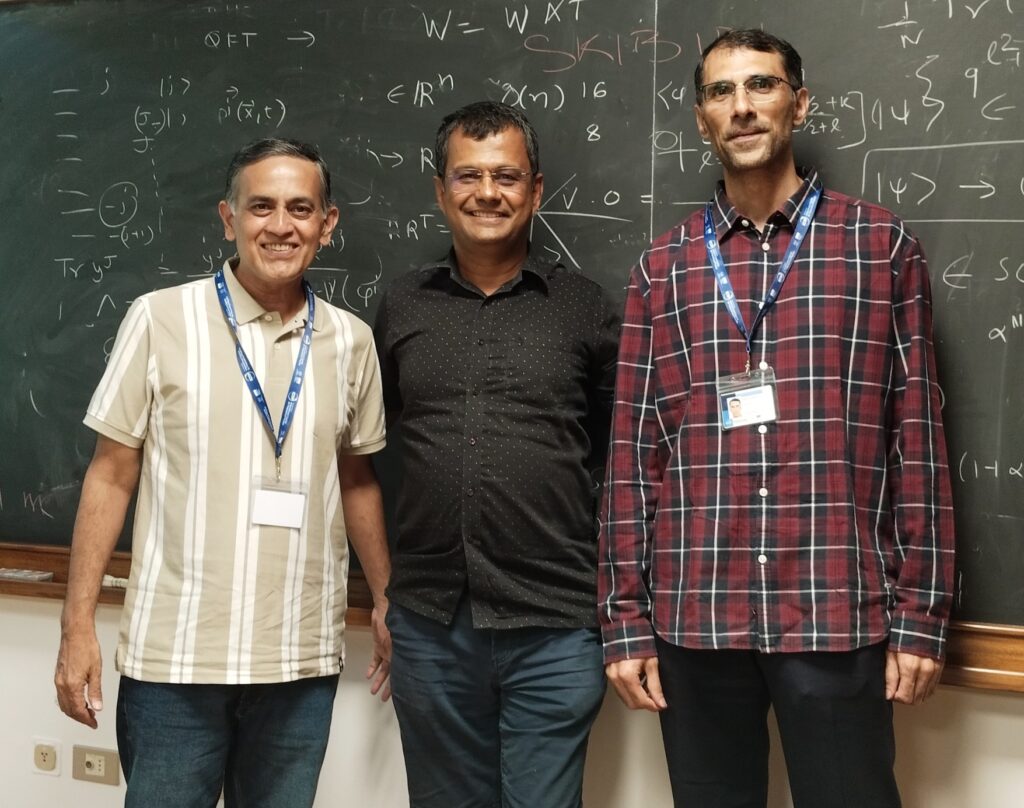
Not only does ICTP look out for its students, it is also deeply appreciative and considerate of the city that hosts it. As Nutan explained, “We live in this community and we want to make sure that we are welcome in this community. And we also want to make sure our students and our visitors are well protected. So for us, this local collaboration is very important”. Indeed, ICTP is also sensitive to how their decisions may impact the local ecosystem and factor that in. Alberto Verjovsky mentioned in our interview with him how the city had been invigorated by the injection of youth coming there because of ICTP. According to Nutan, one of the reasons that the city likes ICTP is because the students and staff that live in the city, “also spend [money] there”. This is why, when the new accommodation for diploma students that is being tried out this year is reviewed (obviously, taking the students’ own feedback into account), one of the considerations will also be to see how things are evolving in the city.
Apart from interviewing the staff from different departments we also spoke to many postdocs and a couple of PhD students. They spoke to us about how they came to know about ICTP and about their experiences at ICTP. Let us get to know about them and what they had to say.
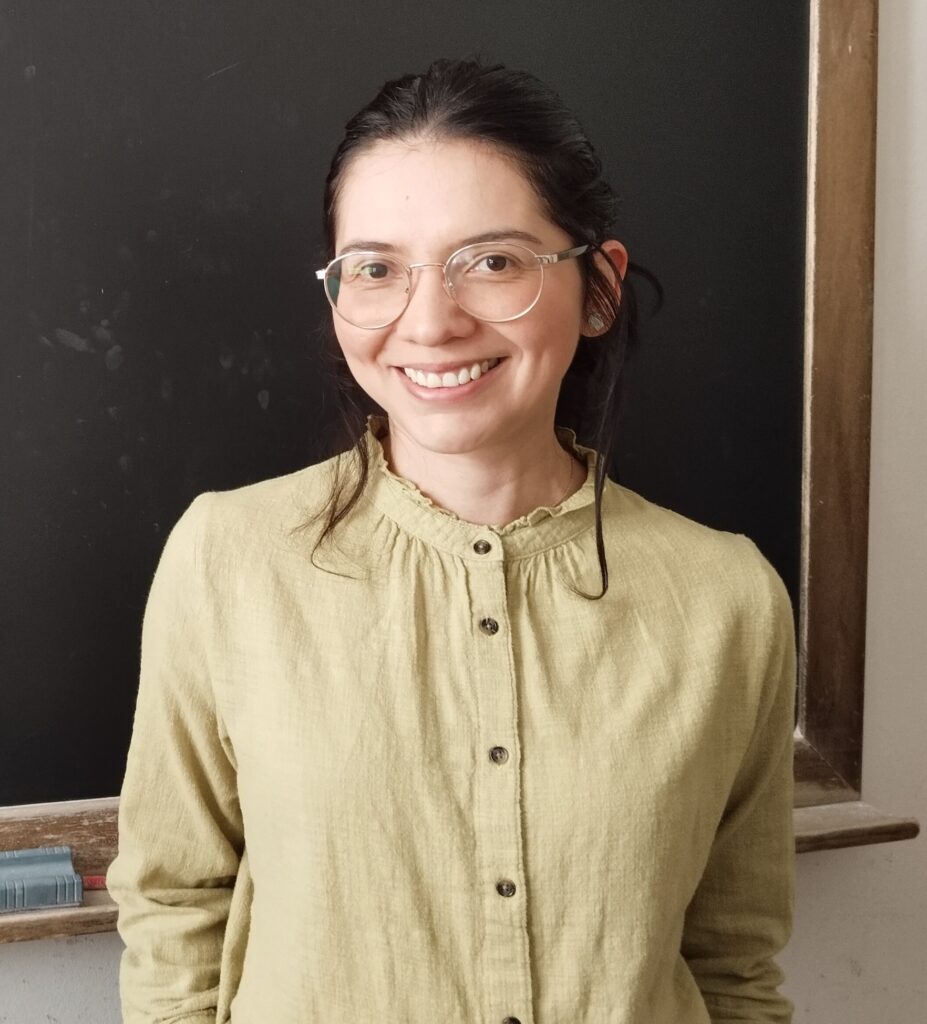
She recollects her initial days at ICTP saying that she got to meet a lot of celebrated people from different countries. Her most beautiful experience was when her student4 got the diploma. got the diploma. She feels that the location of ICTP is beautiful, being close to the castle and the sea. She says, “I think this is magic. Like this is something that everybody wants, you know. In summer, it’s beautiful that you finish your stuff, and then maybe, for example, for me, I take my bicycle, and then I go to the house, but first, I stop and go to the sea. Even if your day was not the best or not productive, you feel like, okay, come on, let’s go to the sea”. Yulieth is also passionate about music and dance and the city is rich in opportunities for both enjoying and practicing these passions.
She has this strong word of advice particularly for students, “persist”. She says, “If you are curious, then continue to persist, if that makes you happy.” She thinks that passion and discipline are very important.
Yulieth has recently moved on to work as an Assistant Professor in the mathematics department at Pontificia Universidad Católica de Chile. She wishes to continue her collaboration with ICTP.
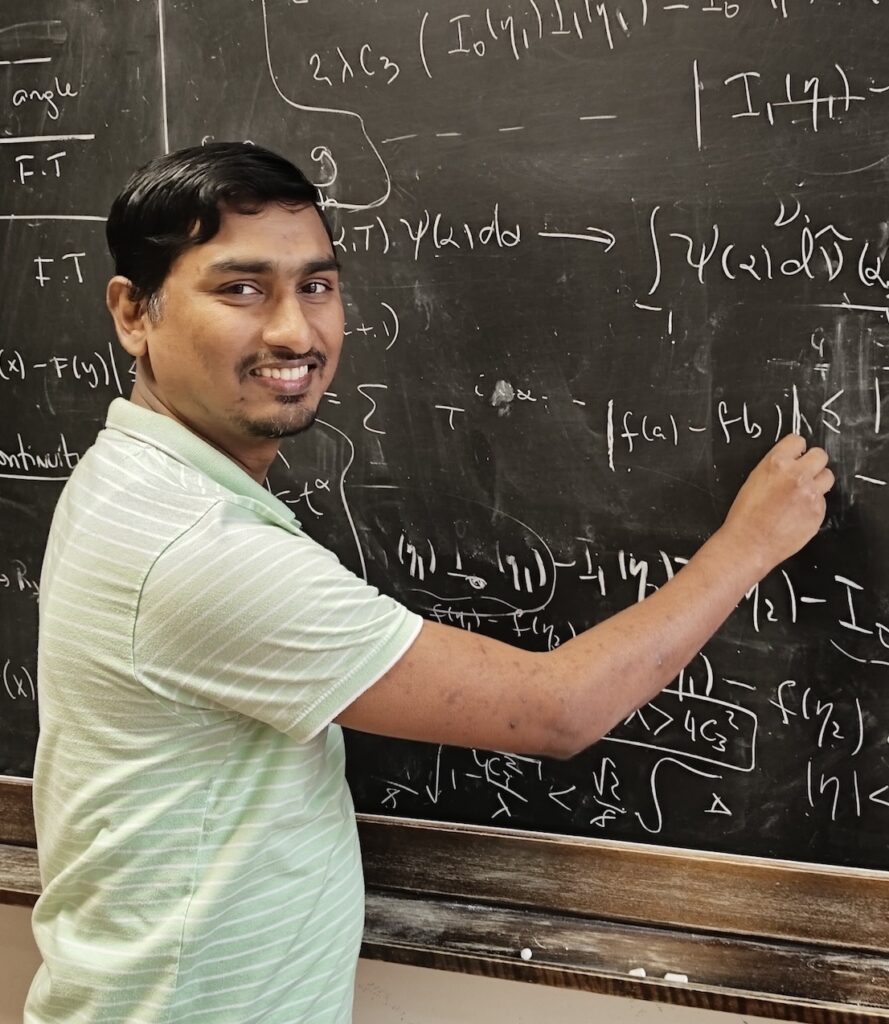
Mithun feels that ICTP has a very positive and a very friendly environment for everyone. He says, “There are postdocs, PhD students, and also diploma students. So, one positive thing here is that you can just interact very easily, because all are very close and people are always discussing, so you can go attend and you can also be a part of those discussions, which is very positive”. In addition to this, he says, “There are some visiting programmes and so many conferences going on here, we meet a lot of people from all over the world, so it is a chance to meet them, talk with them; so this is really a special privilege”.
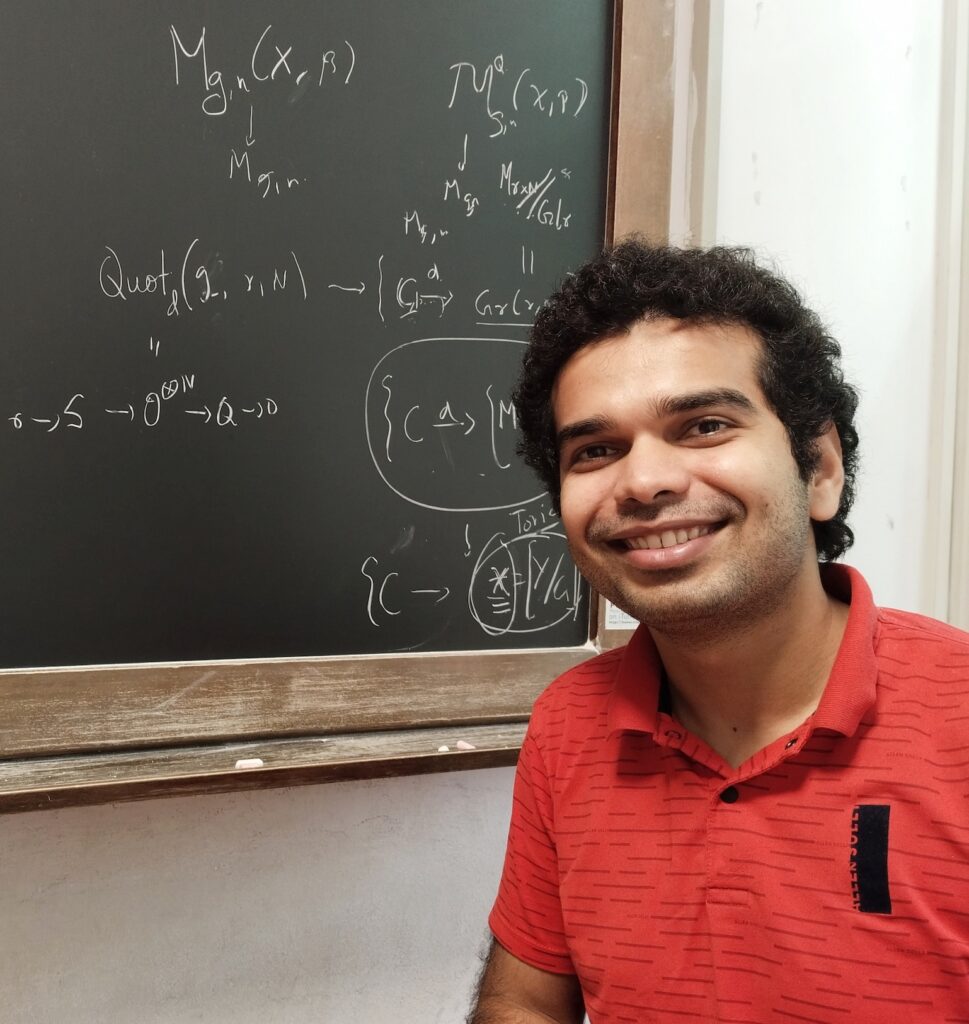
He feels that his move to ICTP was very smooth, and recalls that the housing office helped him to find accommodation within ten days. “The best thing about ICTP is that of interactions with people”, he says, and goes on to add: “ICTP is very, very inclusive and friendly compared to many other institutes in the world. You get to interact with PhD students and professors the same way. ICTP has an advantage of having a sister institution SISSA which has several very good algebraic geometers. And we regularly go there to attend seminars and interact with professors.”
Even after spending more than a year as a postdoc at ICTP, Shubham thinks that he is still a young researcher. He recalls how his idea of mathematics kept changing from time to time. When he was an undergraduate, the idea of maths was like building from bottom-up, starting from set theory and so on. When he went on to PhD, he had a struggle as he realized one couldn’t really understand everything in the world. It can’t quite fit into one’s mind. So he had to, sort of, put things in a black box and move on. And now as a postdoc, he feels maths is a lot about perspectives! He says that there are so many problems, and finding those problems itself is a part of mathematics and that is what he is trying to learn, at this point. He feels that finding interesting or important problems is much more satisfying, and that it is very important to have good mentors along the way.
He admires the works of M.S.~Narasimhan and C.S.~Seshadri, and also the works of Rahul Pandharipande. Shubham feels that ICTP is like one of its kind as it really brings people from around the world to do research here, and asks students to consider if they have any opportunity to come to one of the conferences or even have a position here.
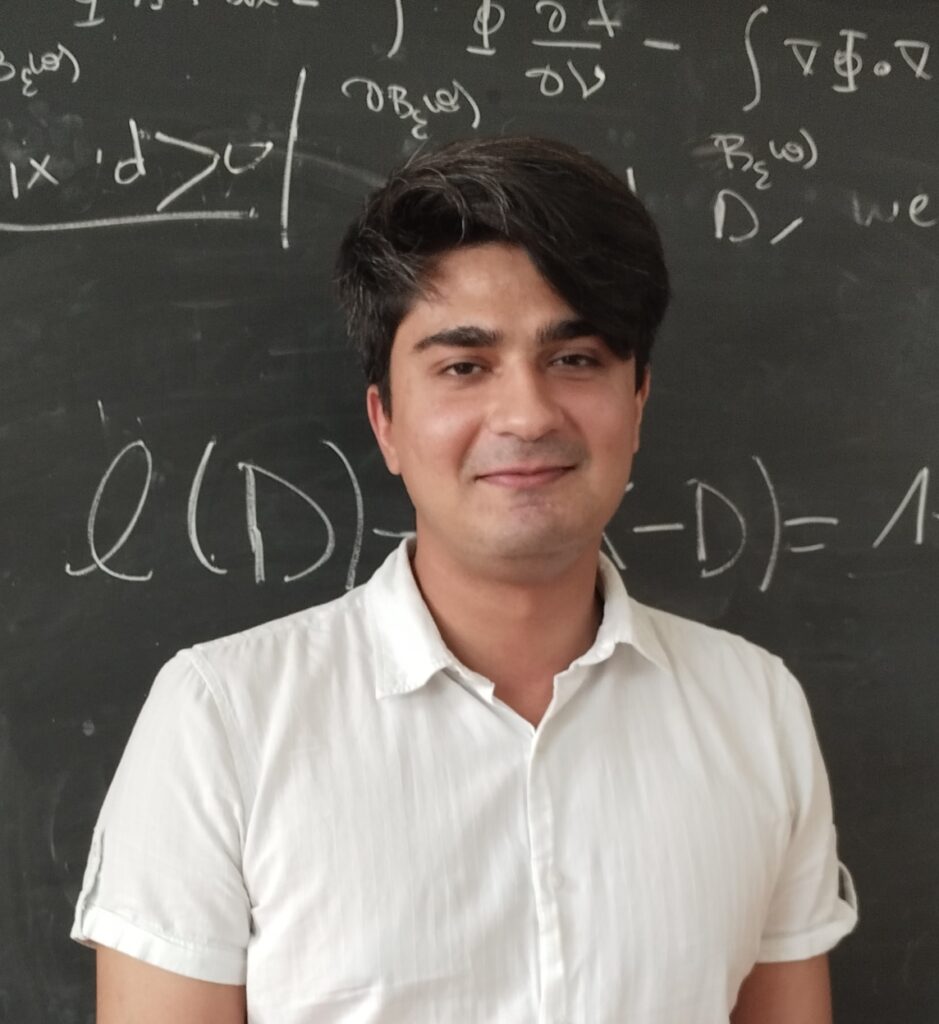
Shoaib volunteered as a tutor for one of the diploma program courses. He says that he has enjoyed interacting with the diploma students very much. In his opinion, ICTP is a unique place where one gets to interact with a lot of people who are truly international! He says, “People who come to ICTP are generally quite passionate about mathematics. They find themselves in this place where they have a lot of resources available and a lot of people who are doing research at an excellent level and this drives them to be very enthusiastic in how they ask questions, how often they ask questions and what kind of questions they ask. I think that’s very nice to experience”.
He strongly believes that mathematics has the ability to bring joy to people of all backgrounds regardless of their country, language, and beliefs, and that ICTP embodies that kind of spirit.
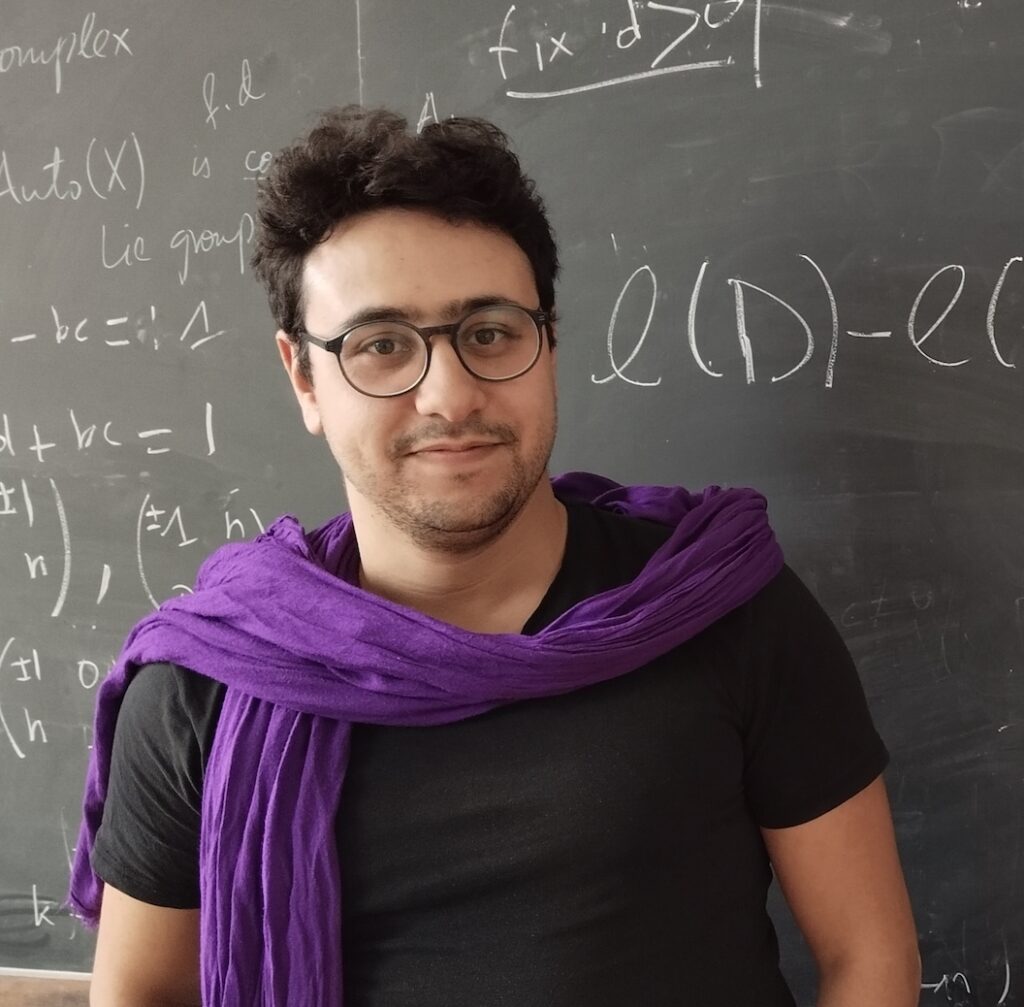
He likes the approachability of the professors at ICTP. He could approach them with questions anytime without any inhibitions. He also enjoyed tutoring the diploma students. He likes playing ping-pong, an unwritten tradition for diploma students, at ICTP.
Truly, all these people have their unique experiences to share and, at the same time, have words that resonate with what Nutan and Margherita said about ICTP.
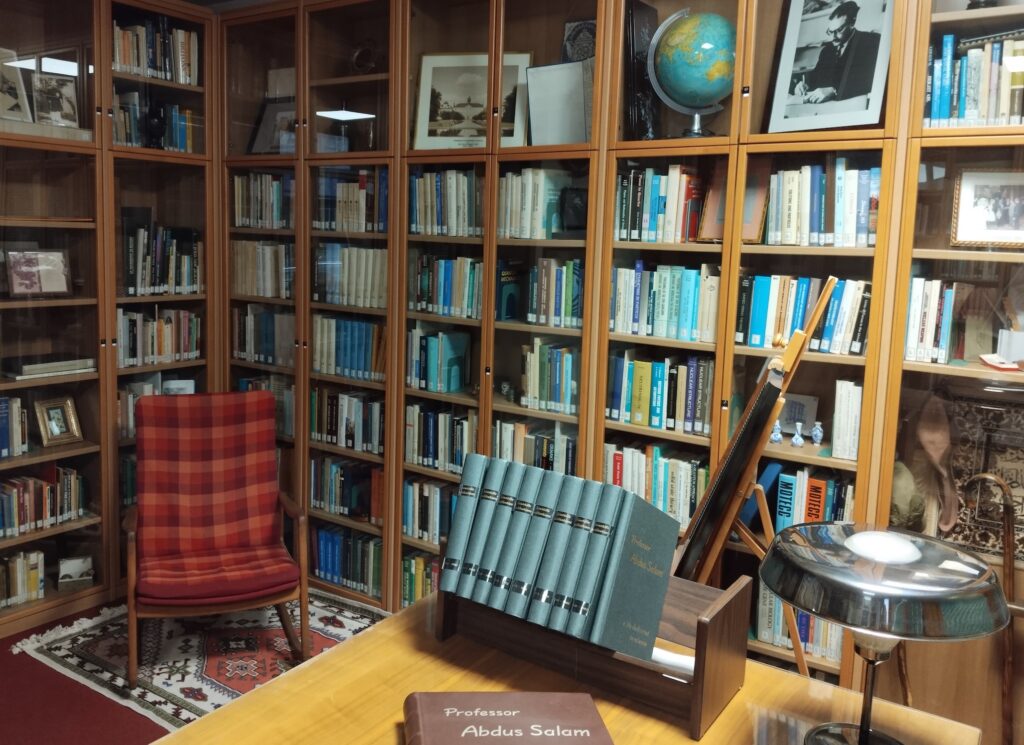
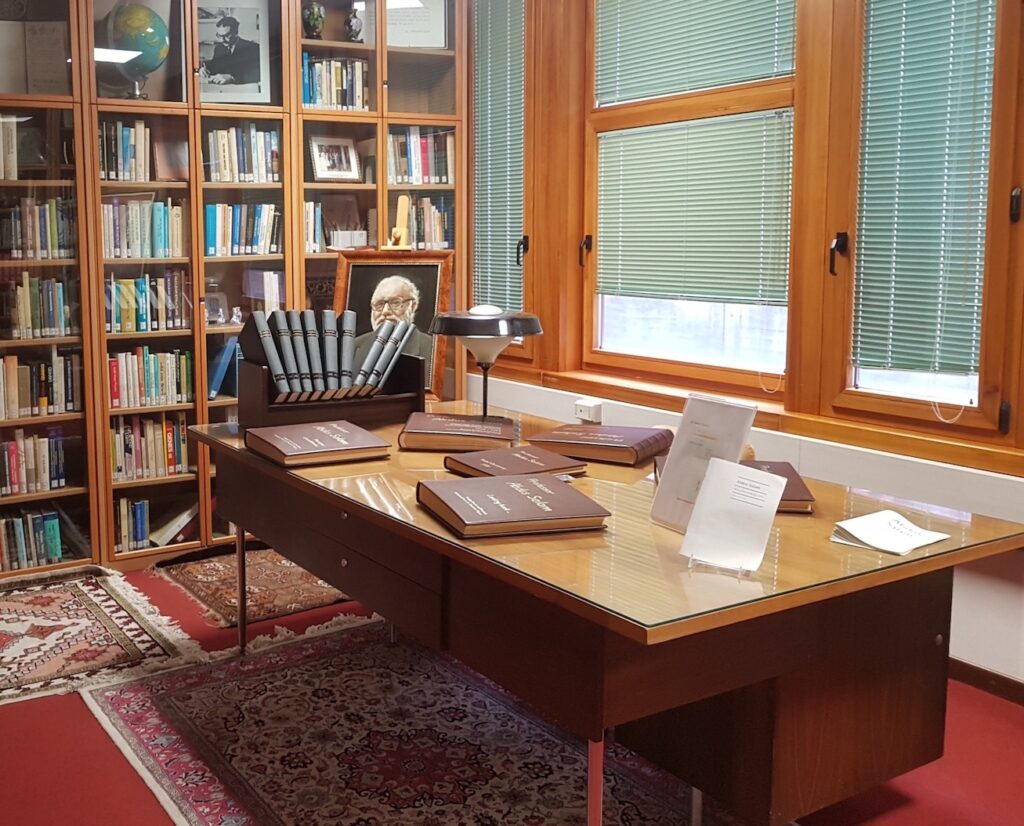 |
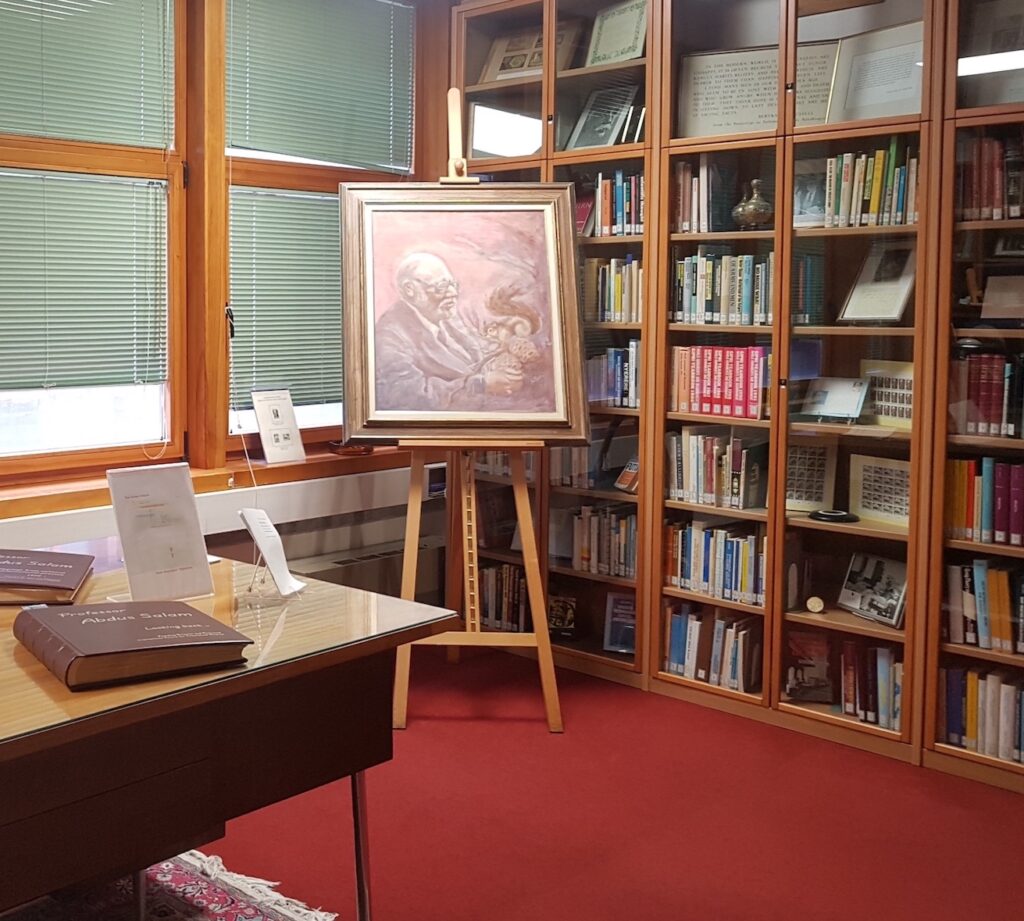 |
| Abdus Salam’s room with his personal collection of books and the albums on the desk Rajesh Akkihal | |
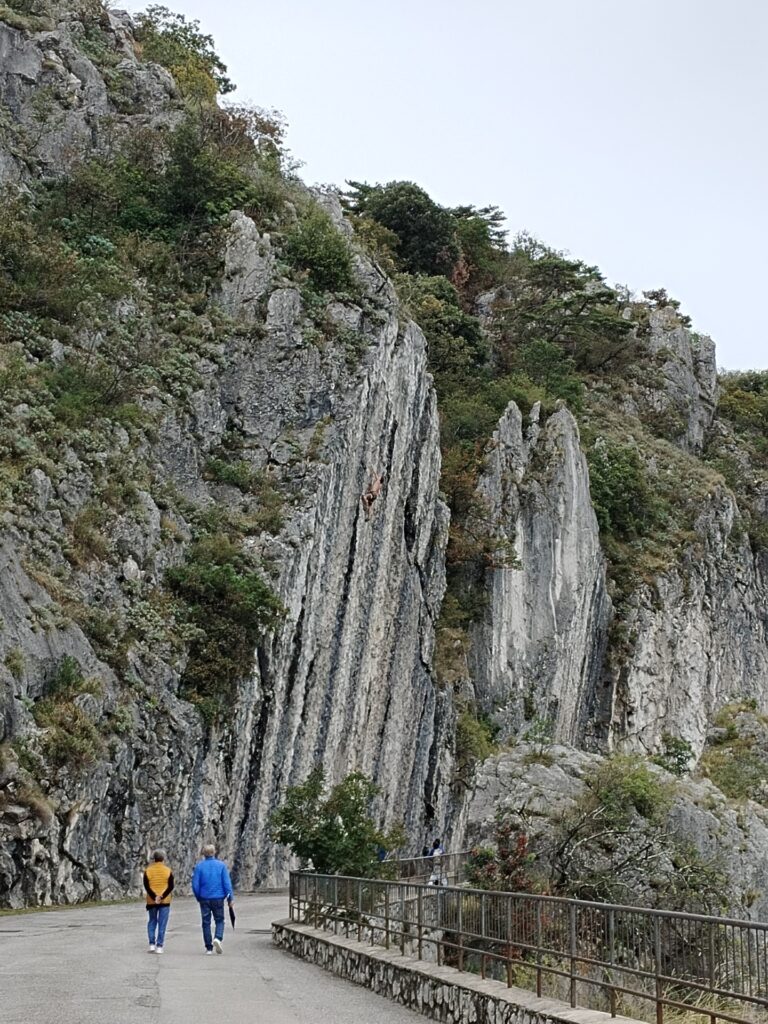
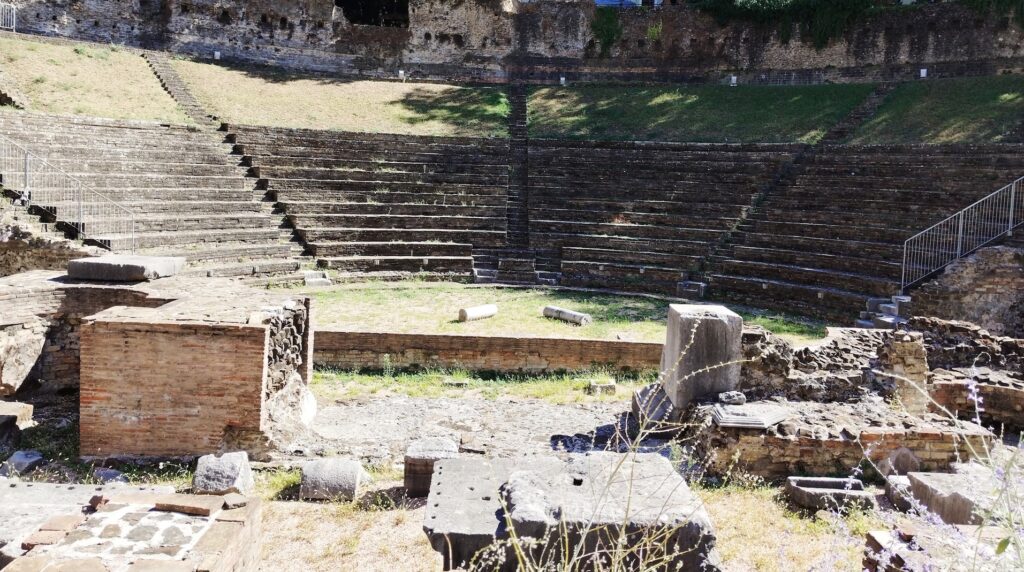
On the last day of our stay, we ventured to try the Napoleonic trail, a 5 km stretch amidst the woods with the hills on one side and a view of the Gulf of Trieste on the other. Towards one end of the trail, there were some huge rock faces where several climbing enthusiasts were seriously practicing their skills.
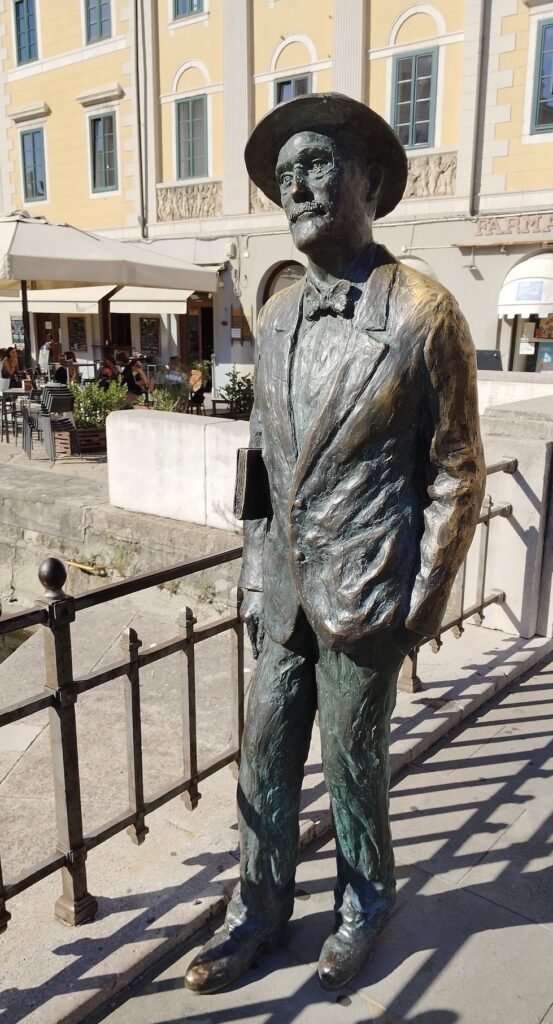 |
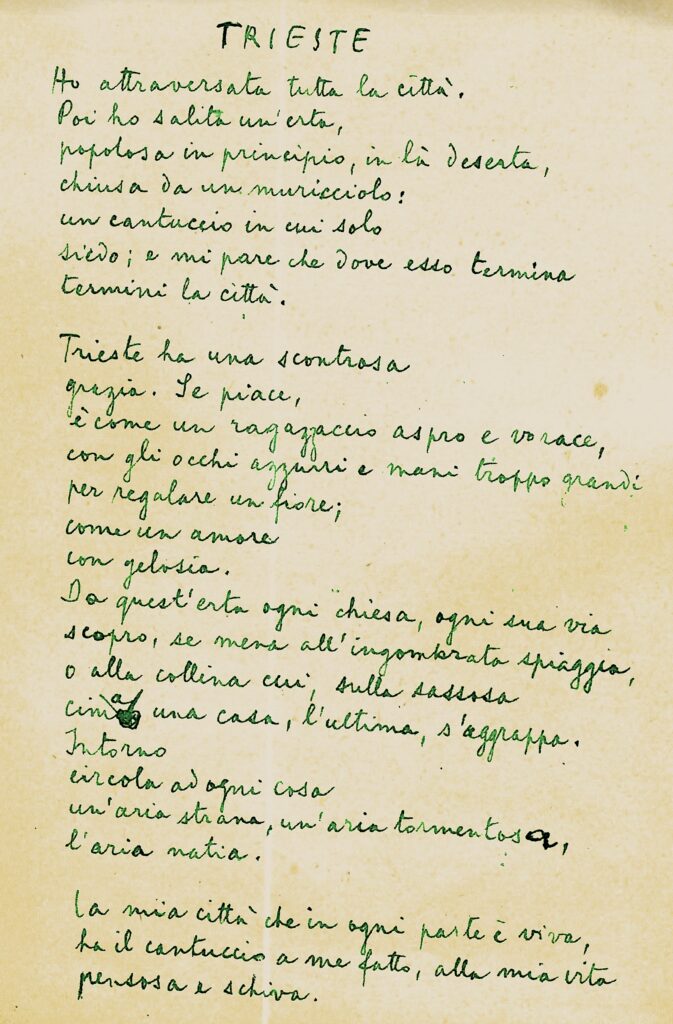 |
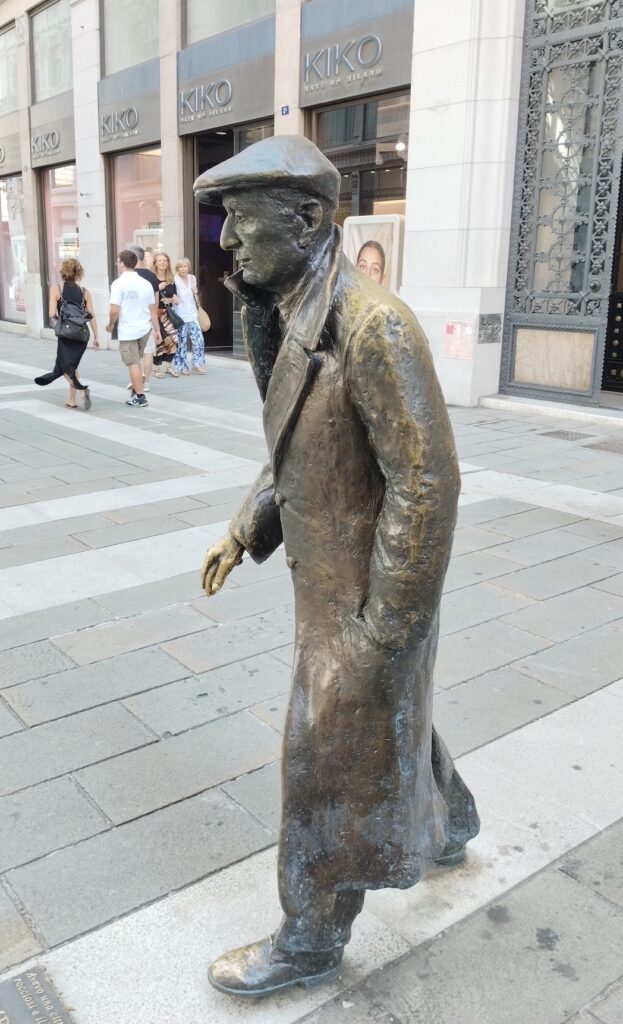 |
The city centre is replete with majestic buildings and churches. Tucked away in the middle of the city is an ancient Roman amphitheater believed to have been originally built around the 1st century CE. As Yulieth had mentioned, there are several theatre, art, music and dance performances and academies for the artistically inclined. Also notable is a rich literary heritage the city has, being linked in one way or another to several renowned authors like Italo Svevo, James Joyce and, of course, Umberto Saba.
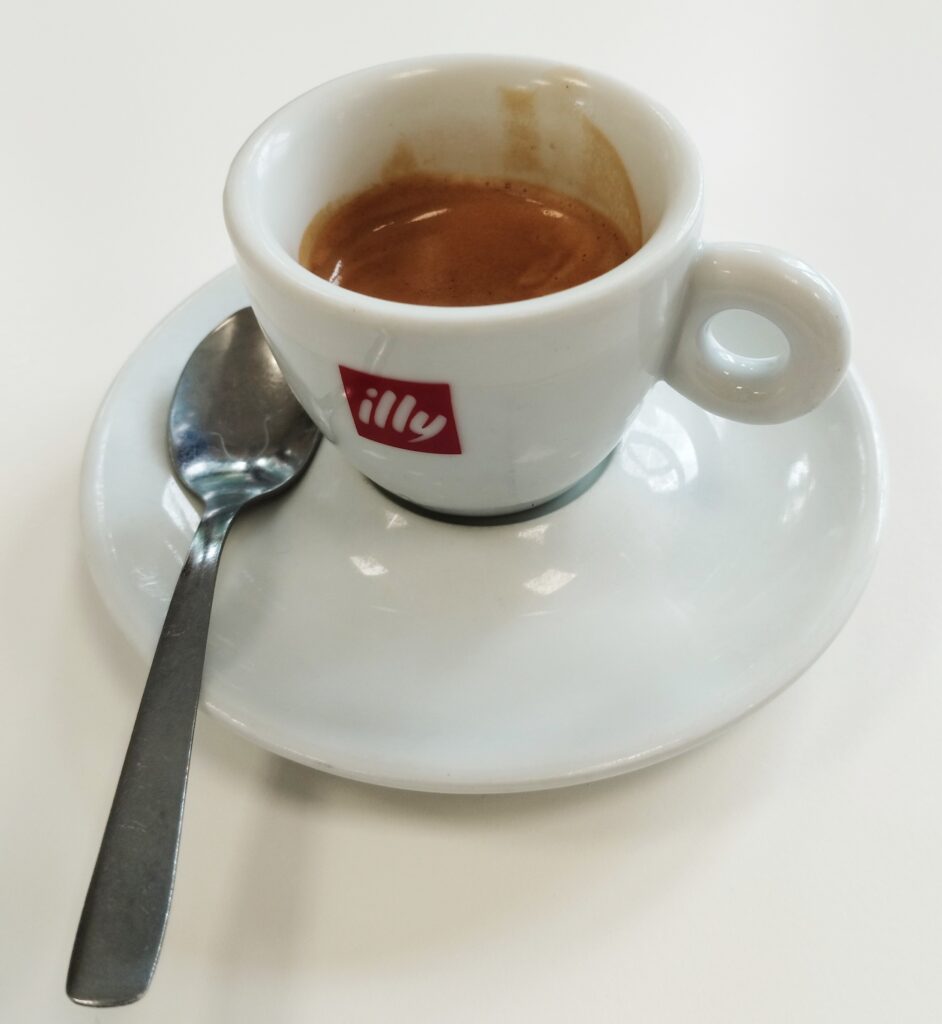
Indeed it was a great experience for both of us to be a part of ICTP, representing Bhāvanā, and interacting with a variety of people. The best thing is that they were all gentle natured and humble, with a sense of pride. The positive vibes were palpable on the ICTP campus. Grazie mille ICTP for all that you are!\blacksquare
Footnotes
- One has to buy tickets before boarding the bus, either at ticket offices, vending machines, or tabaccheria (tobacco shops which also sell bus tickets). ↩
- A full list can be seen here: https://www.sisfvg.it/en/partners/. ↩
- As far as we know, all such payments are made by cheque and not in cash. ↩
- Postdocs and PhD students do volunteer to teach diploma students – a unique phenomenon at ICTP. ↩
